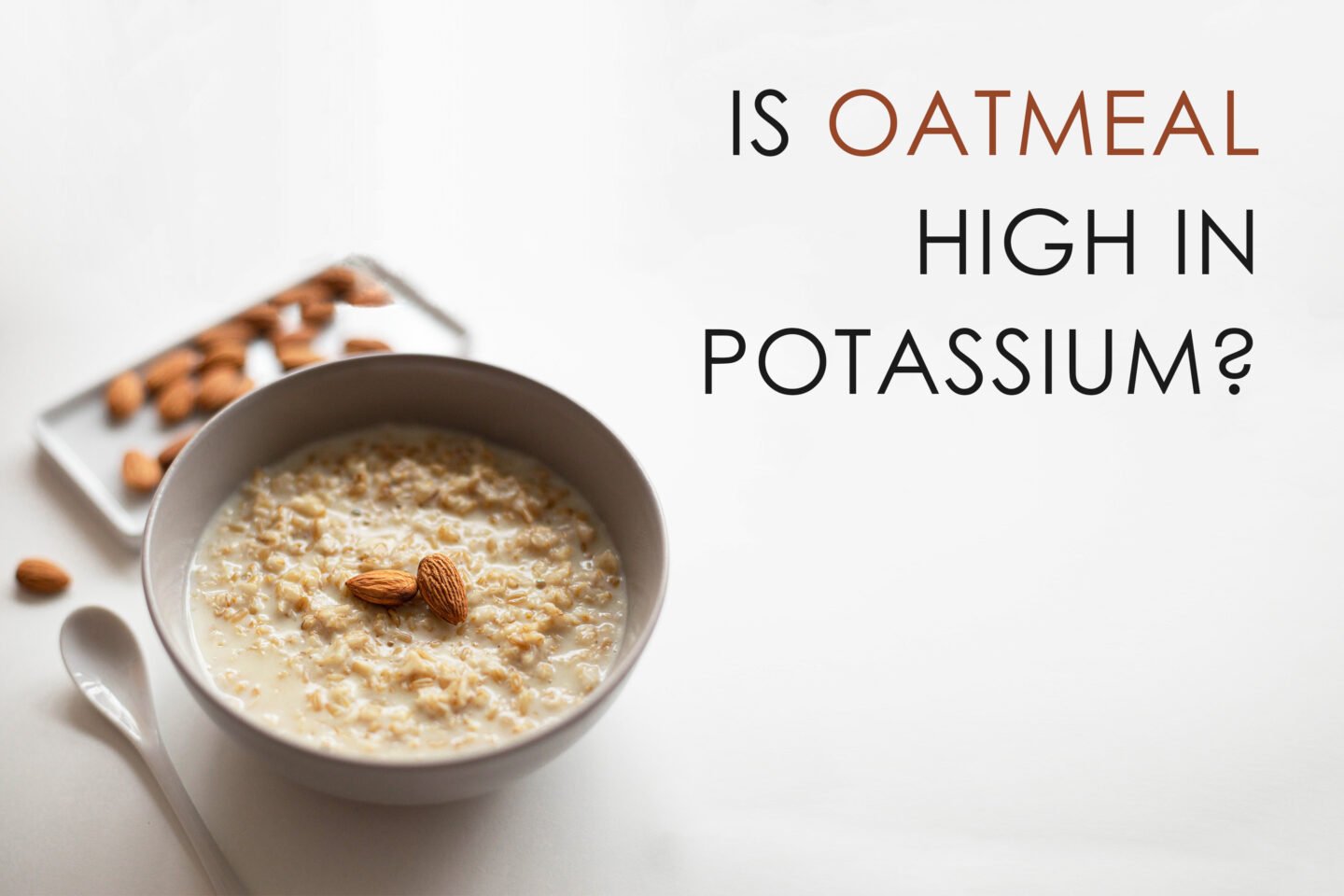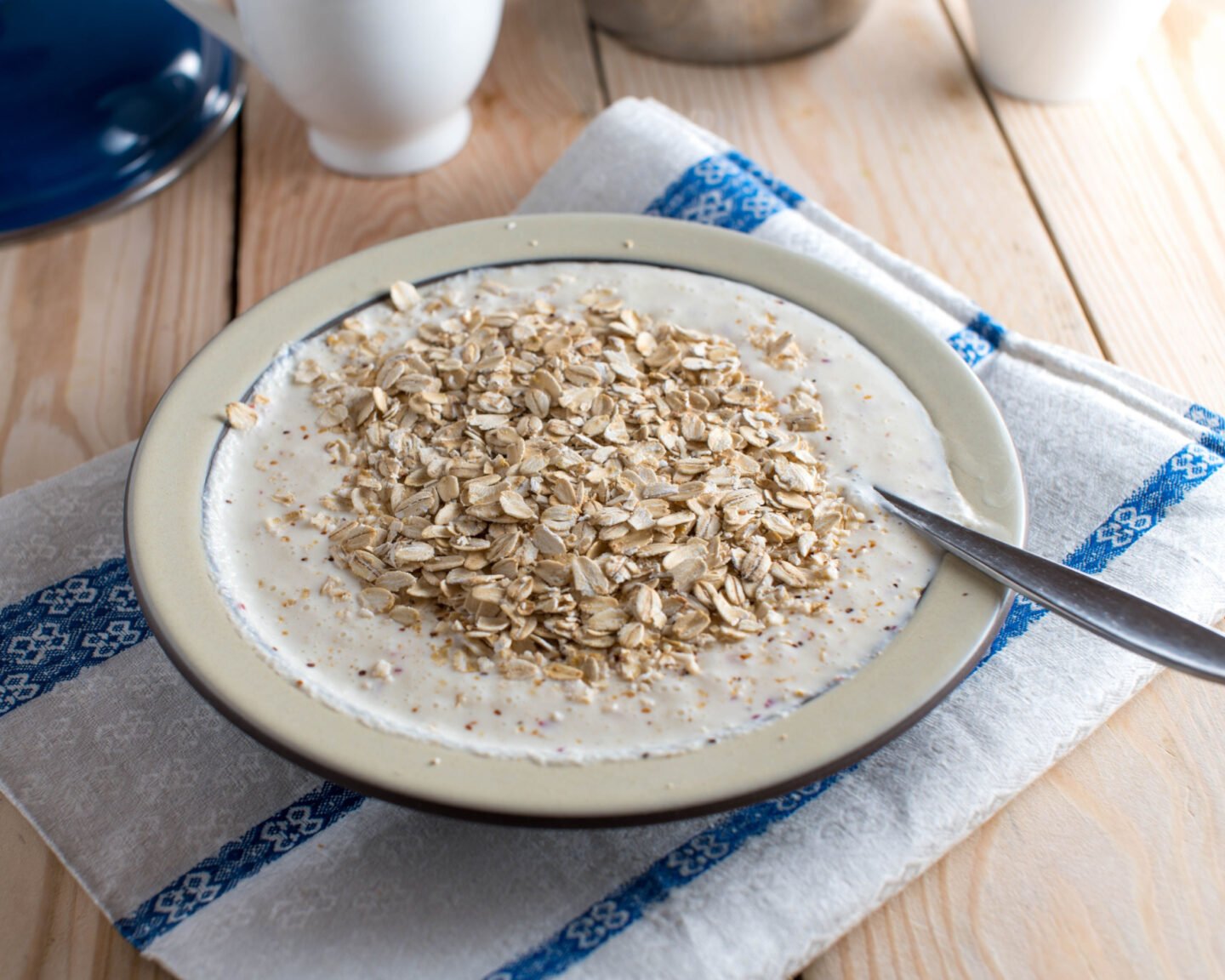Potassium is a mineral essential to many bodily functions. However, some people struggle to metabolize it, so they need to control their intake.

If you're following a low-potassium diet, knowing the potassium levels of common foods enables you to plan your diet and manage your health.
Table of Contents
Is Oatmeal High or Low in Potassium?
Oatmeal is low in potassium. Although it does contain potassium, it doesn't contain enough to cause health issues for people on a low-potassium diet.
Oats are one of the most nutritious grains on earth, providing you with the minerals, nutrients, and vitamins essential for good health.
How Much Potassium Does Oatmeal Contain?
A cup of oatmeal cooked with water contains around 143mg of potassium, which is suitable for those on a low-potassium diet.
Additionally, oatmeal is rich in fiber, which makes you feel full for longer.
However, if you cook your oatmeal with milk, the potassium content is slightly higher at 164mg. This is because milk also contains potassium, but the difference isn't critical to those on a low-potassium diet.

Oatmeal cooked with milk also contains calcium and other nutrients missing from that cooked with water. You could also add some low-potassium fruit for flavor.
Is Oatmeal Healthy?
Oatmeal is whole-grain, gluten-free, and very nutritious. It contains protein and fiber, which make you feel full longer after a meal. Fiber also soaks up excess stomach acid, which can be beneficial for people struggling with acid reflux or GERD. The protein in oatmeal builds muscle tissue and keeps your energy levels stable, meaning you feel less lethargic.
Oatmeal is one of the best sources of manganese. Just one cup of oatmeal provides you with nearly four times the recommended daily intake. This trace mineral is essential for forming connective tissues, bones, blood clotting factors, and sex hormones.
Manganese also helps maintain a healthy metabolism and is essential for a healthy nervous system.
Additionally, oats are rich in antioxidants, especially those only found in grains. Antioxidants help your body flush out free radicals, preventing oxidative damage. They also help lower your blood pressure, reducing your heart attack or stroke risk.
Antioxidants also have a powerful anti-inflammatory effect, which can help with indigestion and inflammation of your digestive system.
Another great reason to include oatmeal in your diet is that it contains a large amount of soluble fiber. This carbohydrate lowers blood sugar levels, increases feelings of fullness, and lowers bad cholesterol levels. Moreover, it feeds the good bacteria in your stomach that contribute to a healthy digestive system.
A diet containing enough soluble fiber is essential, so it's a good idea to get some from oatmeal.
Oats are also very good for your skin. Many studies have shown that applying products containing3 oats can help with itchiness and other uncomfortable symptoms of eczema. Oats can also soothe irritation caused by the sun, makeup, and other skincare products.
Applying prepared oatmeal to your skin can nourish and hydrate it, keeping it glowing and fresh.
Is Instant Oatmeal Higher in Potassium Than Fortified Oats?
Instant oatmeal is produced in a way to allow it to be stored for a long time, and this production method strips it of most of its nutrients, including potassium. Therefore, instant oatmeal is often lower in nutrients than fortified, regular oats.
However, nutrient levels in plain oatmeal are similar to fortified oats. So if you add high-potassium fruits, such a meal might not be suitable for people on a low-potassium diet.
Although it takes longer to cook fortified, natural oats, they're healthier, and you'll feel fuller longer. Instant oatmeal can also contain more sugar and other unhealthy additives.
The potassium content of different oatmeal brands is similar. However, this is only true for unflavored, natural oatmeal. If you buy flavored oats, such as cinnamon, raisins, or chocolate, check the label, as these are usually higher in potassium than regular oats.
They also contain more sugar and sodium, which aren't healthy in high quantities.
Can You Get Too Much Potassium From Oatmeal?
It's impossible to get too much potassium from oats. Also, even if you follow a strictly low-potassium diet, it is still essential for a healthy diet.
If you want your oatmeal to be as low in potassium as possible, avoid adding high-potassium fruits and additives, such as raisins, dry fruit, or nuts, and cook it with water rather than milk.
Oatmeal can form part of a low-potassium diet. However, if you're on such a diet, it's important to monitor how you react to different foods.
Oatmeal is loaded with nutrients that can help you lead a healthy life, so it's a great grain to add to your diet.
Don't know which foods are high in potassium? Read our article, 15 Best Food Sources of Potassium. We also have a guide to this important mineral: Potassium 101: All You Need To Know About Potassium.
